If your pet experiences an allergic reaction, you will likely feel alarmed. Allergic reactions often appear suddenly and with dramatic—sometimes life-threatening—effects. Knowing how to respond if your pet experiences an allergic reaction can help you stay calm and take logical steps to get your pet the help and relief they need. Be prepared when the unexpected occurs by checking out our Midtown Veterinary Hospital team’s guide to allergic reactions in pets.
Signs—recognizing allergic reactions in pets
An allergic reaction can be mild (e.g., a simple skin irritation) to severe (e.g., a life-threatening anaphylaxis). Depending on your pet’s sensitivity, an allergic reaction can appear within minutes or hours.
Fortunately, allergic reactions are easy to identify and tend to have universal signs similar to those of humans. Pets experiencing an allergic reaction may exhibit one or more signs, including:
- Respiratory distress (e.g., wheezing, gasping)
- Collapse
- Facial swelling (e.g., cheeks, muzzle, lips, eyelids)
- Hives, welts, or rash
- Vomiting
- Diarrhea
- Itching
Some allergic reactions may be localized or focal (i.e., limited to one body area or system), while others may have a widespread effect. Signs may appear suddenly or be staggered over the course of several days (e.g., hives followed by diarrhea or vomiting).
Causes—common reasons for allergic reactions in pets
After exposure to an allergen, an allergic reaction occurs, leading to a hypersensitive or exaggerated immune response. Because severity, progression, and recurrence can be impossible to predict, contact our Midtown Veterinary Hospital team when you first notice your pet’s allergic reaction signs. Although knowing the allergen that triggered your pet’s reaction can be helpful, the information is not necessary for providing treatment. Some well-established allergic reaction causes include:
- Insect stings (e.g., bees, wasps, fire ants)
- Topical products (e.g., flea and tick medications, shampoos, sprays)
- Foods
- Vaccines
- Medications
Response—caring for your pet during an allergic reaction
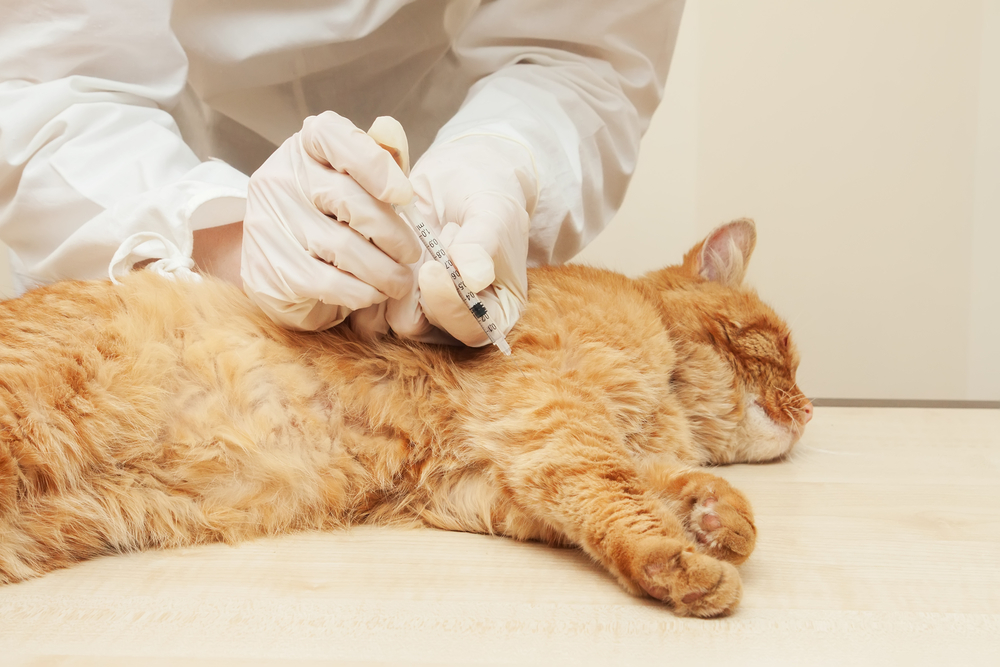
Whether your pet has an allergic reaction history or has never had a reaction, knowing how to respond can save time and help you stay calm. Your clear thinking and timely actions minimize your pet’s discomfort and stress and can save their life during an emergency. Keep an eye out for these potential allergic reaction signs:
- Breathing trouble — If your pet is in respiratory distress, immediately bring them to Midtown Veterinary Hospital or your nearest veterinary facility. Our veterinary team can administer fast-acting injectable medications, such as epinephrine, steroids, and antihistamines, to decrease airway inflammation and swelling, stopping the allergic reaction. If emergency stabilization is required, your pet will be sedated and intubated to prevent complete airway obstruction. Additional treatment includes intravenous (IV) fluid therapy, oxygen administration, diagnostics to assess organ function, medications to support the gastrointestinal tract, and continuous observation to identify complications or relapse.
- Swollen face — Facial swelling (i.e., angioedema) commonly affects the muzzle, ears, and eyelids, giving the pet a bloated appearance. Because their throat may also be affected, closely observe and monitor your pet’s breathing. Contact Midtown Veterinary Hospital, so we can triage your pet’s condition and determine if on-site care is necessary.
If your pet recently received a vaccine or medication at our hospital, we may advise you to return, so we can assess them and administer an injectable antihistamine or a steroid. Mild or moderate swelling will typically resolve without treatment, although close monitoring is strongly recommended.
- Hives, bumps, or rash — Cutaneous allergic reactions, including hives, welts, and raised bumps usually appear hours after allergen exposure. These skin reactions may stay localized to one area (e.g., the groin) or spread to other areas like a rash. Your pet may find these reactions intensely itchy and irritating.
If your pet isn’t experiencing other allergic reaction signs, we recommend taking pictures of the affected area and scheduling an appointment with our Midtown Veterinary Hospital team for nonurgent evaluation. If your pet is uncomfortable, you may give them oral diphenhydramine (i.e., Benadryl) at a dose of one milligram per pound of their body weight every 8 to 12 hours. Use only regular diphenhydramine, not time-release or combination formulas that contain other medications.
Prevention—how to avoid future allergic reactions in pets
If your pet’s allergen is known or strongly presumed, you can take some proactive measures to prevent or minimize their recurrence risk. Unfortunately, because some of pets’ allergens are unknown or unavoidable (e.g., pollen, insect stings) the best thing you can do is to always be prepared for a potential allergic reaction by doing the following:
- Reminding the veterinary team — Although our veterinary team will record your pet’s allergies in their medical chart, you should know what they are, and at each of your pet’s visits, always remind us. With this information foremost in our planning, we are able to choose an alternative medication or administer prophylactic diphenhydramine before your pet’s treatment or vaccination.
- Keeping diphenhydramine in your pet’s first-aid kit — Although antihistamines aren’t effective against every allergic reaction, they are a safe first line of defense if your pet has reaction signs.
- Using only veterinarian-recommended flea and tick preventives — Over-the-counter flea and tick products can contain harmful ingredients that can cause your pet an adverse skin reaction.
A pet’s allergic reaction can take many forms and catch you off guard—but knowing what to do can help you stay calm and ensure your pet gets the care they need. At Midtown Animal Hospital, our American Animal Hospital Association (AAHA)-accredited team provides the highest standard of care for all your pet’s needs—great or small. If your pet is experiencing an allergic reaction, or you would like to determine your pet’s allergens, contact us to schedule an appointment.

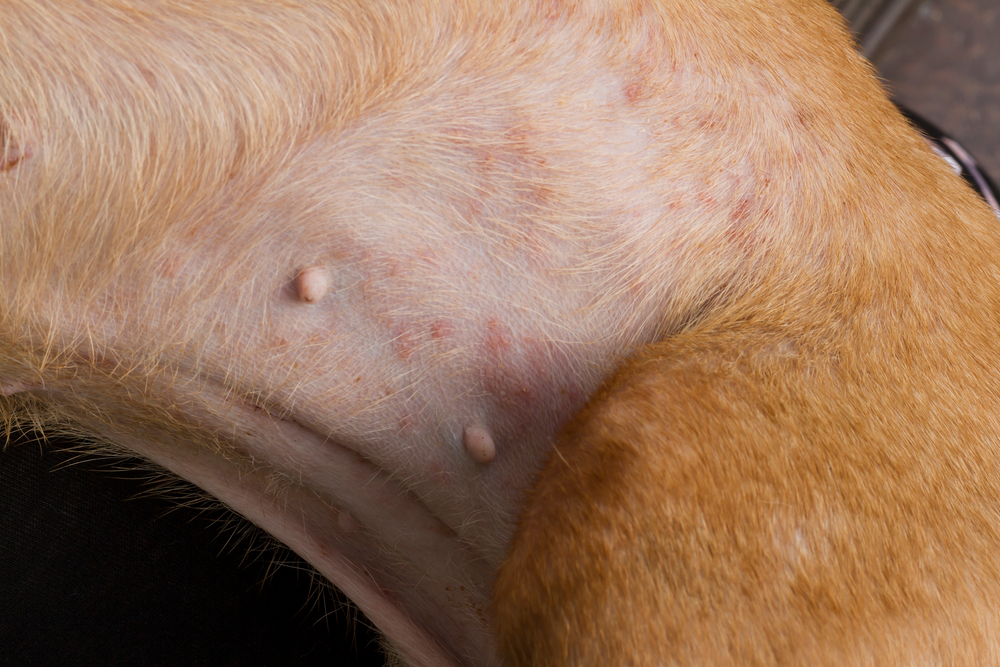

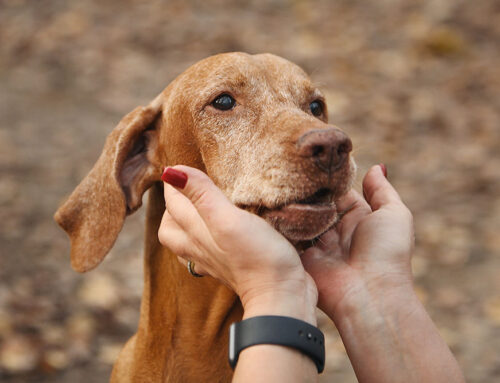
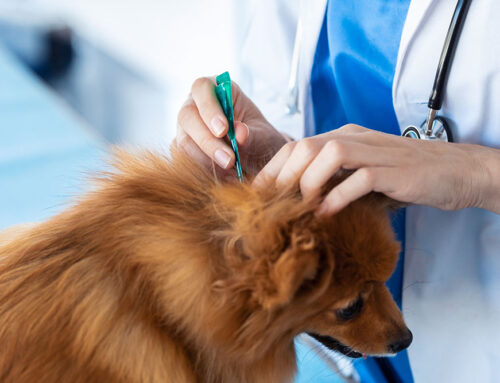
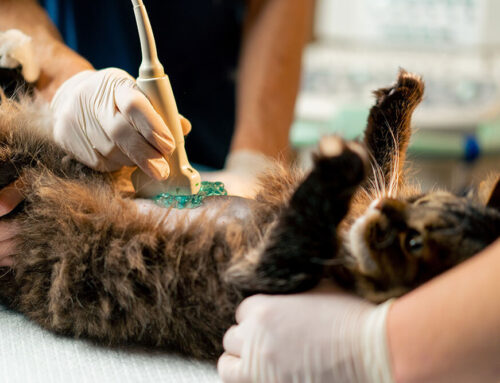
Leave A Comment